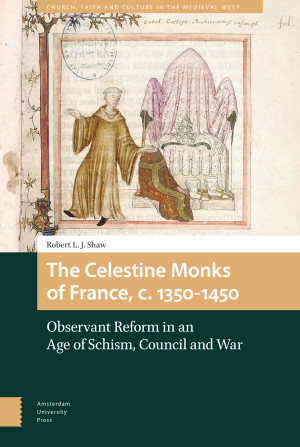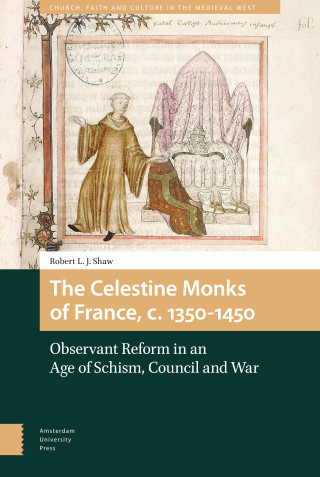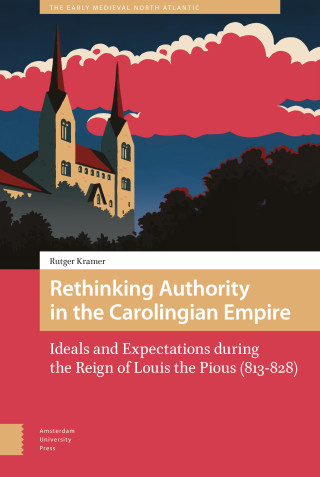Table of Contents
Maps and Figures
Abbreviations
Introduction: The Celestine monks of France and the rise of 'Observant' reform 6
The Celestines and the French Celestines
Later medieval monasticism and reform
PART 1: The French Celestines in their World
Chapter 1. The Vita of Jean Bassand (c.1360-1445)
Provenance and purpose
Defeating 'the lion of arrogance'
The observance of monastic legislation: 'the regular ladder'
Affection, unity and the 'opinion of friends'
Chapter 2. The French Celestine Constitutions and their Heritage: Statute and Spirituality in Later Medieval Monastic Reform
Purity, danger and the 'regular castle'
The legacy of St Peter Celestine
The constitutions inherited by the French Celestines
The French Celestine vision of purity: urban extremism
Reform, law, and the perfection of community
Man's divine likeness
Enforcement and the return of hierarchy
Chapter 3. The Challenges and Adaptation of Regular Observance
Ascetic standards
Rank-and-file discipline
The Celestine leadership
The Celestine Quodlibeta: the moderation of 'regular observance'
Multiple paths: the literary culture of the French Celestines
The works of Pierre Pocquet
I: Editing Cassian's Conferences and Climacus's Ladder of Perfection
II: The Orationarium in vita Domini nostri Jhesu Christi et de suffragiis sanctorum: building the inner man and communities at peace
III: St Joseph - a model for monastic superiors?
PART 2: The World of the French Celestines
Chapter 4. Foundations, Benefactions and Material Maintenance
Giving to the Celestines
Founders and foundations
Other benefactors and benefactions
Financial insecurity and the problem of foundation masses
The reduction acts of 1414 and 1436: war, fragile rents, and financial crisis
The moral difficulties of foundation masses
Chapter 5. The Cultural Outreach of the French Celestines
The French Celestines as a political symbol
'Grand buildings' and humble authority: the legacy of Charles V
The age of Charles VI and the Great Schism
Lancastrian aspirations
'A fertile school': the doctrinal outreach of the French Celestines
Conversion patterns
Lay religious direction
Reformist outreach
The Celestines and Jean Gerson
Epilogue and Conclusion
Appendix 1. Lists an Map
Appendix 2. Reductions of Foundation Masses (beyond anniversary masses) at the Celestine Monastery of Paris, 1414 and 1436 (drawn from Paris, Arch. Nat LL/1505 and Paris, Bibliothèque Mazarine, MS 3330)
Appendix 3. Reduction of Foundation Masses (beyond anniversary masses) at the Celestine Monastery of Sens, 1414 ('Célestins de Sens, obituaires', in Obituaires de la Province de Sens, ed. A. Molinier, Receuil des historians de la France, obituaires, 4 vols (Paris, 1902), i, 900-16)
Maps and Figures
Map
Figures
1. The Celestine Constitutions: The Renunciation of St Peter Celestine and Introduction (Celestines of Avignon - Saint-Pierre Célestin, c.1380s; Avignon, BM MS. 727, fol. 1r).
2. Entrance to the church at the Celestine house of Paris, including the statues of Charles V, Jeanne de Bourbon, and St Peter Celestine (H. Millin, Antiquités nationales, 5 vols (1790, Paris), i, 11. N.B.: the image is reversed).
Index




